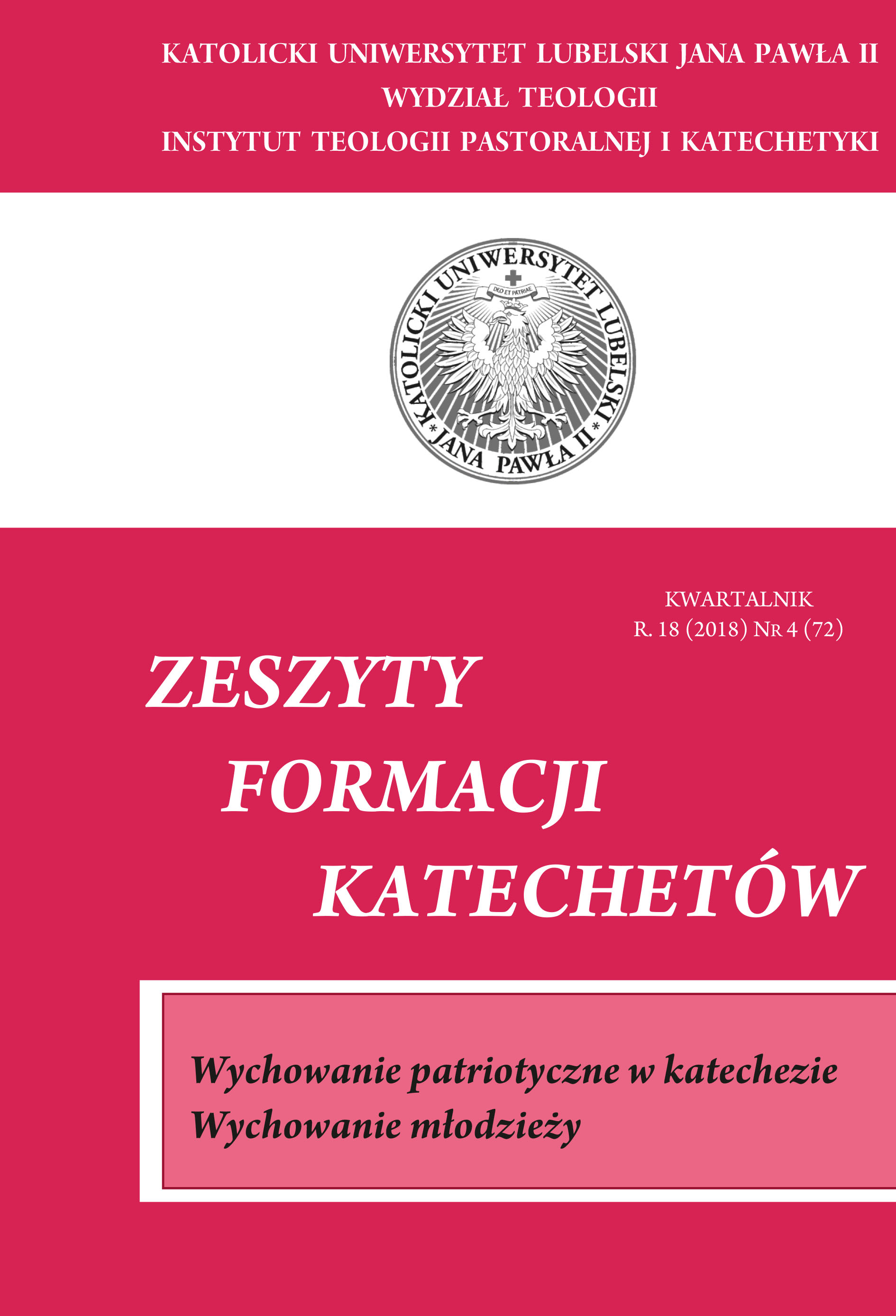The role of motivational dialogue in the identity formation process
Keywords:
motivational dialogue, dialogue, motivation, personality, potential, the process of becoming oneselfAbstract
One of the phases of personality development is the fulfilment of one’s own "I" in the social environment, which is not always favourable. Despite the fact that individuals anchor their behaviour in an organised structure, every person has a chance to define themselves from their own individual point of view. However, with various experiences gained throughout life, they become more and more complicated and diverse. In order to be able to escape the impasse, one needs to revise their current beliefs on reality and start creating their new "own world". A motivational dialogue will positively influence further development through personality revision, stimulation of one’s own potential, and, what follows, determination to introduce changes by pursuing one’s set aim. Emotions and thoughts that guide us in our lives are also a mirror of our relations. They may be regulated in relations with others through a motivational dialogue, for which a word is an essential part, and which has a functional meaning in the organisation of the communication and creation process. In my work, I will discuss the issues connected with a motivational dialogue, which encourages us to verify our current beliefs as well as make us realise our capabilities. A motivational dialogue makes us act, by influencing the shape of our life and personality and contributing to the creation of our new own lifestyle.
References
Alfred A., Sens życia, PWN, Warszawa 1986.
Andrzejewski B. (red.), Słownik filozofów, Poznań 1995.
Bańko W. (red.), Wielki słownik wyrazów obcych, Wyd. Naukowe PWN, Warszawa 2005.
Długosz-Kurczobowa K., Słownik etymologiczny j. polskiego, Wyd. Naukowe PWN, Warszawa 2003.
Dubisz S. (red.), Uniwersalny słownik języka polskiego, Wyd. Naukowe PWN, Warszawa 2003.
Festinger L., Teoria dysonansu poznawczego, tłum. J. Rydlewska, Wyd. Naukowe PWN, Warszawa 2007.
Gordon T., Wychowanie bez porażek, czyli trening skutecznego rodzica, tłum. M. Szafrańska-Brant, Pax, Warszawa 2014.
Jaraczewska J. M., Krasiejko I., Dialog motywujący w teorii i praktyce, Akapit, Toruń 2012.
Kaczmarek Ł., Pozytywne interwencje psychologiczne. Dobrostan a zachowania intencjonalne, Zysk i S-ka Wydawnictwo s.j., Poznań 2016.
Kopaliński W., Słownik wyrazów obcych i zwrotów obcojęzycznych, Bellona, Warszawa 2007
Maslow A., Motywacja i osobowość, tłum. J. Radzicki, PWN, Warszawa 2006.
May R., O istocie człowieka. Szkice z psychologii egzystencjalnej, tłum. M Moryń, Z. Wie-se, Dom wydawniczy Rebis, Poznań 1995.
McGinnis A.L., Sztuka motywacji, tłum. A. Nizińska, Vocatio, Warszawa 2013.
Miller W.R., Rollnick S., Dialog motywujący. Jak pomóc ludziom w zmianie, Wyd. UJ 2014 Kraków.
Morreale S.P., Spitzberg B. H., Barge J.K., Komunikacja między ludźmi. Motywacja, wiedza i umiejętności, tłum. P. Izdebski, PWN, Warszawa 2007.
Ostasz L., O usprawnianiu rozumu i leczeniu psychiki. Psychoterapia filozoficzna, Laterna, Krynica Morska 2007.
Rogers C.R., O stawaniu się osobą, tłum. M. Karpiński, Dom wydawniczy REBIS, Poznań 2002.
Seligman M., Optymizmu można się nauczyć. Jak zmienić swoje myślenie i swoje życie, Media rodzina of Poznań, Poznań 1993.
Studnicki P., Dialog jako wartość,Pietrus, Kraków 2017.
Downloads
Published
How to Cite
Issue
Section
License
Copyright (c) 2018 The Journals of Catechetical Formation

This work is licensed under a Creative Commons Attribution-NonCommercial-NoDerivatives 4.0 International License.

